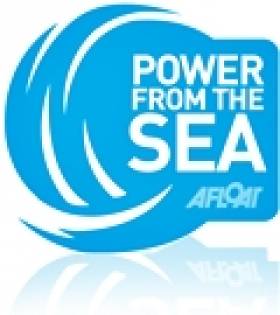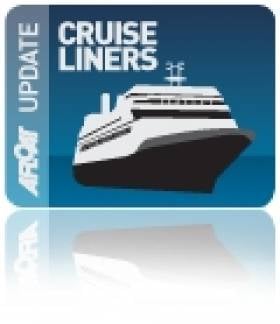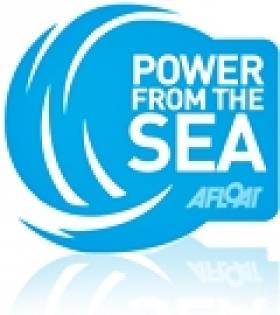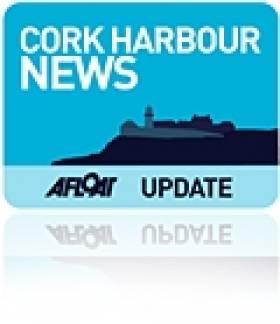Displaying items by tag: National Maritime College of Ireland
New Marine Energy Lab for Cork Harbour
#POWER FROM THE SEA - A new marine research lab in Cork Harbour could help Ireland to be a global leader in renewable energy, the Irish Examiner reports.
The Beaufort Laboratory, being built on a three-acre site next to the National Maritime College of Ireland on Haulbowline Island, is set to be completed by 2016.
And scientists at the €14 million lab have told Minister for Energy Pat Rabbitte that it will be the largest marine renewable energy research facility in the world.
Expected to be a base for 135 researchers from University College Cork (UCC), the lab also hopes to attract the world's top researchers in marine energy to the area, with an aim to exploiting the potential for jobs in the fast-growing ocean energy sector.
The new lab forms part of the Irish Maritime and Energy Resource Cluster (IMERC) established to promote the country as a world-renowned research and development location, as previously reported on Afloat.ie.
The Irish Examiner has more on the story HERE.
A Tale of Two Sisters: Cobh’s Former Liner Tenders
#LINER TENDERS – As Dubliners and visitors alike enjoy the facilities of Cill Airne, the River Liffey's floating restaurant and bar venue, her sister, Canima is in complete contrast, as she rusts away on the far side of the Atlantic, writes Jehan Ashmore.
The Camina was originally launched as Blarna along with Cill Airne from the Liffey Dockyard in the early 1960's as passenger tenders serving the trans-Atlantic liners out of Cobh for the Cork Harbour Commissioners. The 1,000 passenger capacity sisters, each around 500 gross tonnes, were the last vessels to be built using riveted hull constructed methods in Europe.
With the collapse of the liner trade and proliferation of the jetliner in the early 1970's, they had served short careers in Cobh. Blarna was sold to North American interests while Cill Airne remained in Irish waters. She was sold to the Cork Institute of Technology for radar and navigation training on the River Lee and Cork Harbour.
By 2003 Cill Airne's days were numbered as she became obsolete when high-tech simulators formed part of the National Maritime College of Ireland (NMCI) in Ringaskiddy.
She was sold to Dublin investors in 2006 having completed an extensive restoration project at Hegarty's Boatyard in West Cork. She reflects her liner era heritage with art-deco fittings, wood panelling and timber decks throughout, for more click HERE.
As for Blarna, she later served in Bermuda which lasted until 1988. To read more on what her former captain from the Bermudian career has to say on her fate in Canada, where there are plans to secure her future as reported on the RoyalGazette, click HERE.
UCC Wave Energy Trials Central to New Maritime Cluster
#POWER FROM THE SEA - A €9 million Europe-wide wave energy trial programme is one of the key elements of a new Government programme designed to transform Ireland as a maritime nation.
According to The Irish Times, University College Cork's Hydraulics and Maritime Research Centre will run testing of wave energy, tidal energy and offshore wind energy devices across a network of sites in 12 European countries participating in the new marine renewables infrastructure network Marinet.
Irish test sites in the network include the national ocean test facility in Cork and centres operated by the Sustainable Energy Authority of Ireland (SEAI) at Galway Bay and Belmullet.
The UCC centre also forms part of the new Irish Maritime and Energy Resource Cluster (IMERC), launched last Friday by Taoiseach Enda Kenny.
The cluster comprises UCC, the Irish Naval Service, Cork Institute of Technology and the National Maritime College of Ireland with the initial aim of creating 70 new research jobs by 2014 in the areas of wave energy, green shipping and sustainability of ocean resources.
IMERC director Dr Val Cummins said: “The aim of IMERC is to promote Ireland as a world-renowned research and development location that will unlock Ireland’s maritime and energy potential."
The Irish Times has more on the story HERE.
- Irish Naval Service
- maritime
- Cork
- Galway Bay
- Belmullet
- National Maritime College of Ireland
- wind energy
- UCC
- Cork Institute of Technology
- renewable energy
- wave energy
- sustainable energy
- tidal energy
- network
- testing
- Sustainable Energy Authority of Ireland
- Taoiseach Enda Kenny
- SEAI
- Hydraulics and Maritime Research Centre
- Marinet
- devices
- Irish Maritime and Energy Resource Cluster
- IMERC
- Dr Val Cummins
NMCI Open Day: Let’s Sea What You’re Made Of
The open day is primarily aimed at fourth-year transition and leaving certicifcate students. For further information, enquiries and bookings for groups contact NMCI Tel: (021) 497 0607 by email: [email protected] and also the website: www.nmci.ie
Countdown to Cork Harbour Open Day
This will be the third Cork Harbour Day which is to cover a wide range of events, such as concerts on Spike Island, a photographic exhibition in Camden Fort, guided tours of an Irish naval ship at Cork City Quays and an open day at the National Maritime College of Ireland (NMCI).
In addition Fastnet Line's ferry Julia will be open for the public to board. The 22,161 gross tonnes serves the Cork-Swansea route and for the Open Day she will be berthed at Ringaskiddy Deepwater Berth instead of the nearby ferry terminal. To read details of Open day programme visit www.corkharbour.ie and updates click HERE.
The concept for the Harbour Open Day emerged three years ago, which combined various stakeholders involved in the development and implementation of the Integrated Strategy for Cork Harbour. A group comprising of representatives from UCC, City and County Councils, the Naval Service and the Port of Cork set about working together to engage with users of the harbour and to organise the Open Day.
Cork Harbour is the second largest natural harbour in the world, next to Sydney Harbour, offering beautiful locations for enjoying the outdoors, dramatic coastlines, and excellent leisure facilities, and is home to some very talented artists, sportsmen and women, and people who are passionate about the history, heritage and cultural value of Cork Harbour.
- Spike Island
- Cobh
- Cork Harbour
- naval service
- National Maritime College of Ireland
- port of Cork
- Cruise Liners
- Cork Harbour Open Day
- NMCI
- Ports and Shipping
- Cobh Cruise Terminal
- Cork Harbour News
- Cunard Line
- Queen Elizabeth
- Cruise ships
- Cork City Quays
- Camden Fort
- Port of Cork Company
- Ringaskiddy Deepwater Terminal
Vacancies at Mainport International Corporation
The Mainport International Corporation has vacancies for the following positions.
Masters for their Seismic Support Vessels working worldwide. The suitable candidate is required to have good ship-handling experience, as the position involves replenishment of seismic vessels at sea, while underway. Simulation training will be given at the National Maritime College of Ireland (NMCI) Ringaskiddy prior to commencement of employment.
In addition there are vacancies for Engineers on board their Seismic Support Vessels. The position is for a tour of duty of two-months on and two- months off. Applicants are asked to email their CV and relevant certificates to [email protected] and [email protected]
For further information in general about the Cork based Mainport Group logon to www.mainport.ie and for the NMCI www.nmci.ie
Professional Short Courses at NMCI
Personal Safety & Social Responsibility (PSSR) - May 16th 2011
Advanced Fire Fighting (5 days) – Apr 11th 2011
Personal Survival Techniques (PST) Mar 22nd & Apr 26th 2011
Elementary First Aid May 23rd 2011
Efficient Deck Hand – May 30th 2011
Team Building (on demand)
Water Safety Course (on demand)
In addition listed below are the following OPITO Approved Offshore Courses.
BOSIET 3days - Mar 9th, Mar 28th 2011
MIST 2 days - Mar 3rd ,Mar 7th, Mar 31st 2011
FOET 1 day - Mar 14th ,Mar 23rd 2011
HUET & EBS - On demand
For more details on these courses contact the NMCI on (021) 497 0600 click HERE and in general information about the maritime college www.nmci.ie In addition there are further details about the oil and gas sector by clicking on this website www.opito.com
National Maritime College Publishes New Video
The National Maritime College of Ireland in Ringaskiddy has published a new promotional video highlighting job opportunities from studying at its state of the art marine facilities in Cork harbour. See the video below.
Graduation Ceremony at National Maritime College of Ireland
The NMCI, Ireland's only purpose built Maritime Training Centre, and a constituent college of CIT will, tomorrow afternoon, host the conferring of graduates in Ringaskiddy, Co. Cork.
For the first time in the history of the Naval Service and the Defence Forces, a full Level 7 (NFQ), Ordinary Degree in Leadership, Management & Naval Studies will be awarded to 13 Non-Commissioned Officers in recognition of their completion of the NS Senior NCOs Course and ancillary Modules.
The June graduation ceremony is highly significant in the context of military training and education and is the culmination of a five-year intensive project that has secured external accreditation for the training and education undertaking by all ranks. The Naval Service of today offers major awards under the National Framework of Qualifications for its training and education programmes.
The graduation ceremonies will take place at 1500 hrs on Thursday 17 June at the National Maritime College of Ireland (NMCI), Ringaskiddy.






































































